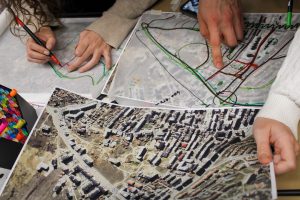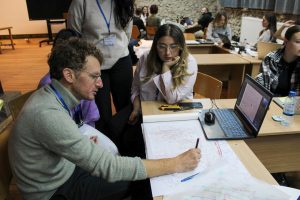




Ambitious Plans vs. Harsh Realities in Kosovo's Planning Process
In a idetailed presentation, Prof. Dr. Binak Beqaj, a seasoned planning official, illuminated the challenges and obstacles within Kosovo’s planning process. His insights highlighted how ambitious plans often clash with the realities faced by transitional countries like Kosovo.
Political and Administrative Hurdles in Effective Planning
Although “everything is in place” politically, and institutions have established planning guidelines, professional implementation remains lacking. Quoting the Ministry of Environment, Prof. Dr. Beqaj noted that “many plans are inadequately implemented.” This lack of implementation is driven by several factors, including insufficient learning processes and a lack of continuous improvement. Bureaucratic delays also bog down planning processes, making them “slow and tedious” for stakeholders, which in turn weakens momentum for genuine progress.
Infrastructure Challenges and the Investment Deficit
Prof. Dr. Beqaj emphasized that Kosovo suffers from inadequate technical infrastructure and unevenly distributed services. With limited investment capacity, the country struggles to allocate the necessary funds to bring plans to fruition. Severe environmental challenges, a lack of standardized housing in urban areas, and underdeveloped residential districts further exacerbate these issues. “Without investments, everything remains on paper and does not get implemented,” Prof. Dr. Beqaj warned.
Social Impacts and the Pressure of Demographic Change
Kosovo faces population declines across many regions, adding new pressures to urban and regional planning efforts. With limited future prospects, social activities within communities are diminishing. This adds complexity to fostering economic growth, innovation, and sustainable infrastructure through realistic planning. “People do not feel like partners in the process,” Prof. Dr. Beqaj criticized, noting that public participation is often only a formality, with input rarely reflected in actual plans.
An Urgent Call for Reform in Kosovo’s Planning
In conclusion, Prof. Dr. Beqaj stressed the necessity for reform in Kosovo’s planning process. “With precise planning, we will have fewer conflicts, better infrastructure, and more rational land use.” Only through such reforms can Kosovo become attractive to both investors and residents, positioning itself sustainably and competitively in the region.
A Call for Collective Action Towards Sustainable Development
Prof. Dr. Binak Beqaj’s critical insights into Kosovo’s planning challenges highlight the urgent need for action. Through collective commitment to structural reforms, transparent planning, and genuine public involvement, Kosovo can forge a path toward sustainable, integrated development.



